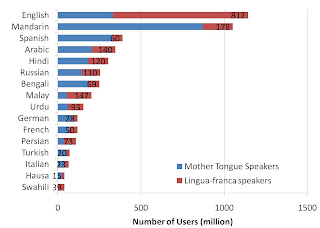The principles of disruptive innovation show that when good companies fail, it often has been because their managers either ignored these principles or chose to fight them. Even successful companies with efficient and capable management team are toppled down with the disruptive innovation. See what happened in TV industry for example. Here is the dilemma: large companies, even with the great management team, cannot rationally follow the disruptive technologies, but those technologies are the critical factors in winning new era. The industry just opened by disruptive technologies is too small to enter for giants, too small to analyze properly, and too small to be accepted or highly evaluated by the large number of customers. However, if you are the managers of large companies, you should follow those technologies so that you would achieve sustainable growth in changing business scenes, even though you face difficulties in explaining to your shareholders on what you do with those disruptive innovations.
Dr. Clayton M. Christensen, author of this book, mentions several way for the successful companies manage disruptive technological changes:
1. They embedded projects to develop and commercialize disruptive technologies within an organization whose customers needed them. When managers aligned a disruptive innovation with the “right” customers, customer demand increased the probability that the innovation would get the resources it needed.
2. They placed projects to develop disruptive technologies in organizations small enough to get excited about small opportunities and small wins.
3. They planned to fail early and inexpensively in search for the market for a disruptive technology. They found that their markets generally coalesced through an iterative process of trial, learning, and trial again.
4. They utilized some of the resources of the mainstream organization to address the disruption, but they were careful not to leverage its processes and values. They created different ways of working within an organization whose values and cost structure were turned to the disruptive task at hand.
5. When commercializing disruptive technologies, they found or developed new markets that valued the attributes of the disruptive products, rather than search for a technological breakthrough so that the disruptive product could compete as a sustaining technology in mainstream markets.
It’s been more than 10 years since the book was issued, but the point that Dr. Christensen made is still valid or even getting more crucial than before. Entrepreneurship would be the key to success even in large organizations.

 If we go without nuclear energy, in the first year we would see the carbon dioxide increase which equals to what Germany and Japan emit a year. Although EU asked its members to conduct "stress-tests" on their reactors and the Japan case provoked arguments on nuclear energy in EU countries, the rapid shift in power is less likely to happen. France may see the disaster in Japan as an opportunity. It has AREVA, the world largest nuclear plant maker which covers most of the value chain of nuclear energy industry. You can see world's nuclear usage trend here:
If we go without nuclear energy, in the first year we would see the carbon dioxide increase which equals to what Germany and Japan emit a year. Although EU asked its members to conduct "stress-tests" on their reactors and the Japan case provoked arguments on nuclear energy in EU countries, the rapid shift in power is less likely to happen. France may see the disaster in Japan as an opportunity. It has AREVA, the world largest nuclear plant maker which covers most of the value chain of nuclear energy industry. You can see world's nuclear usage trend here: 


